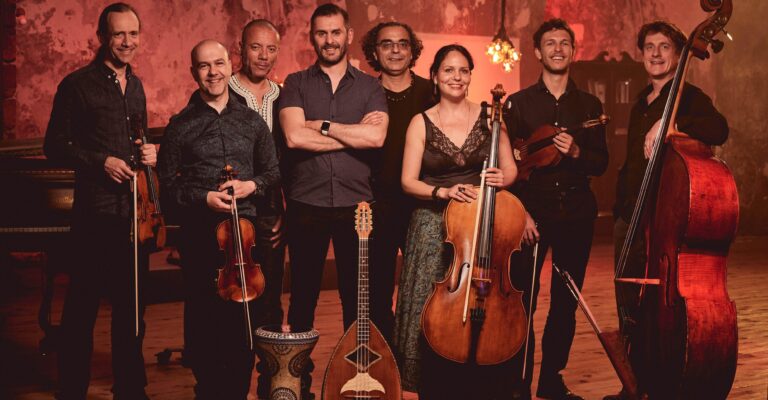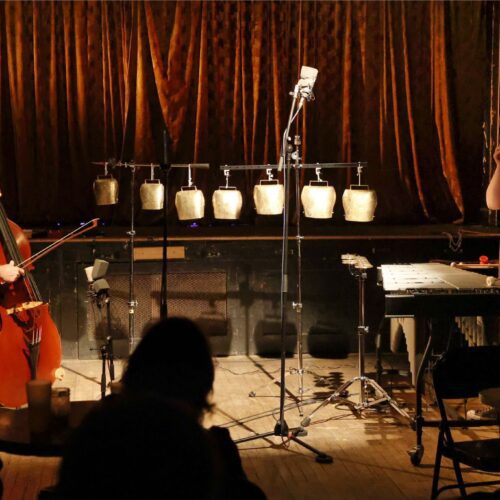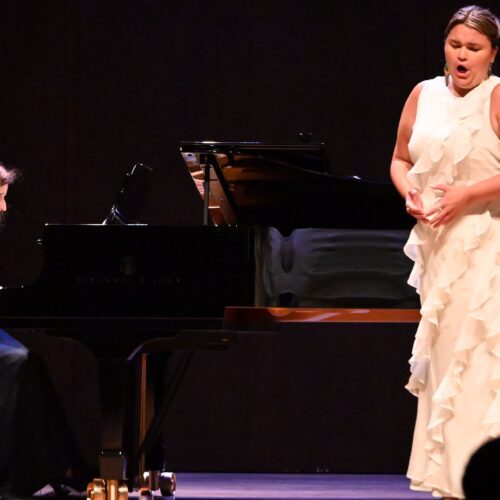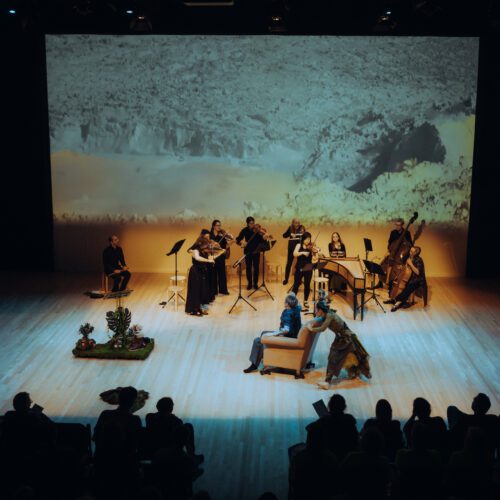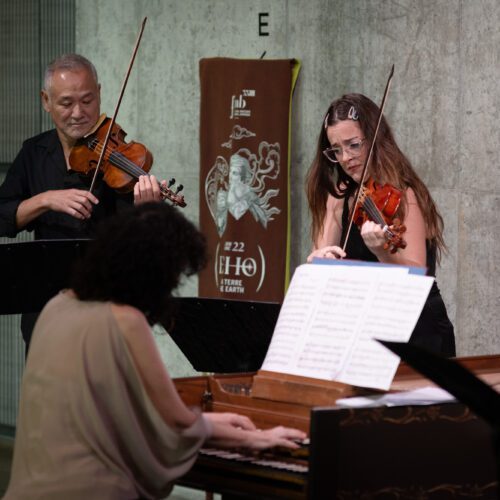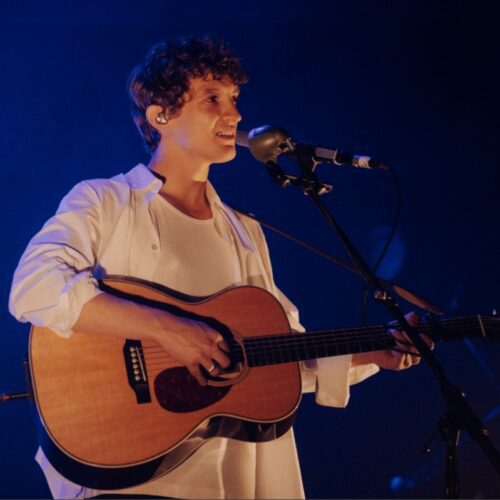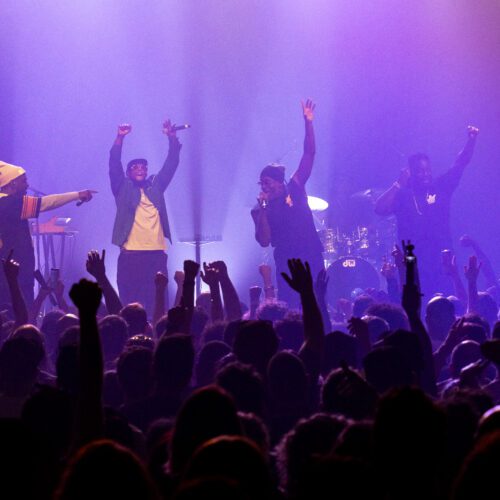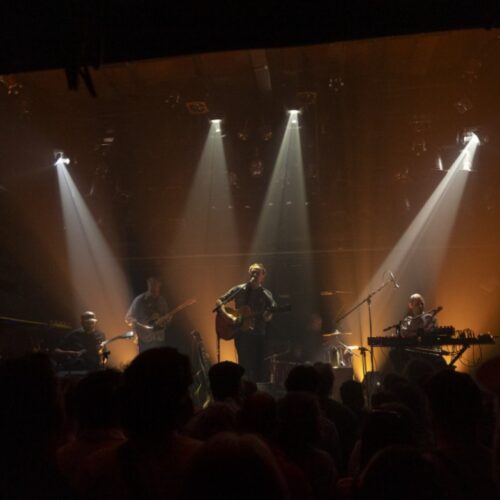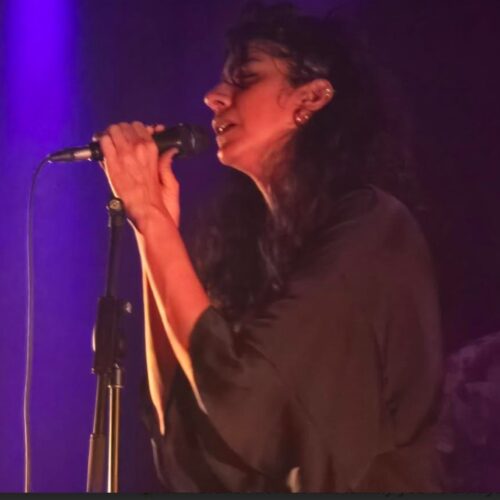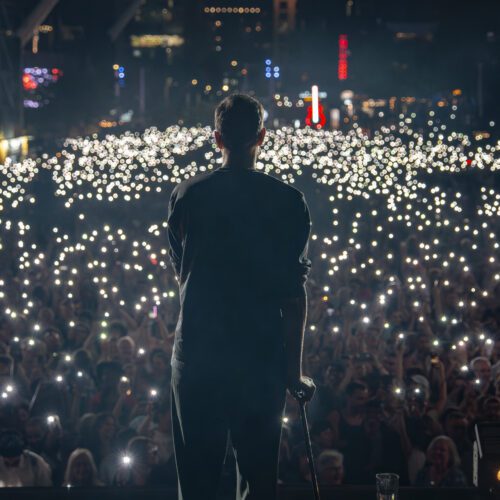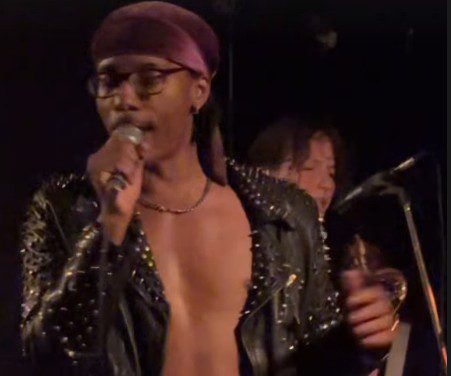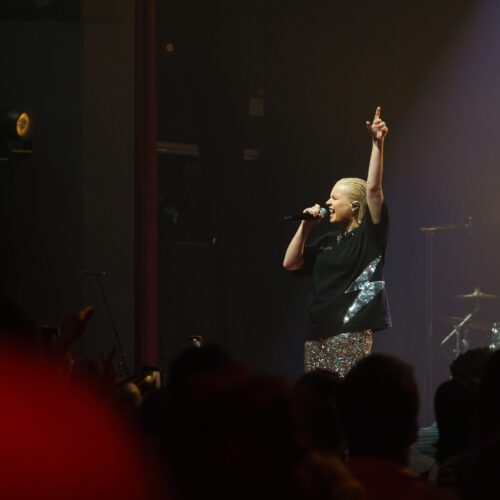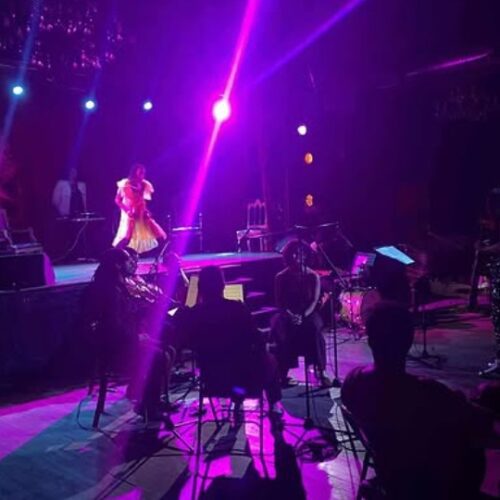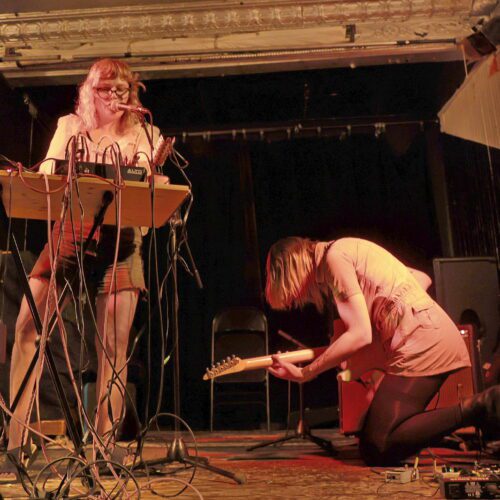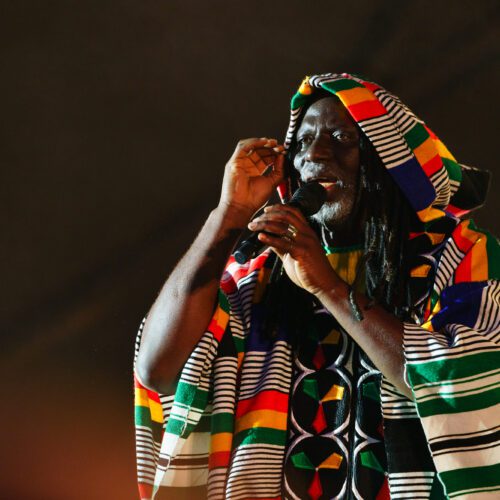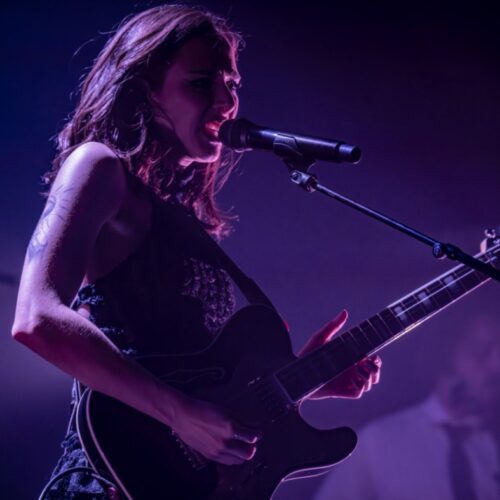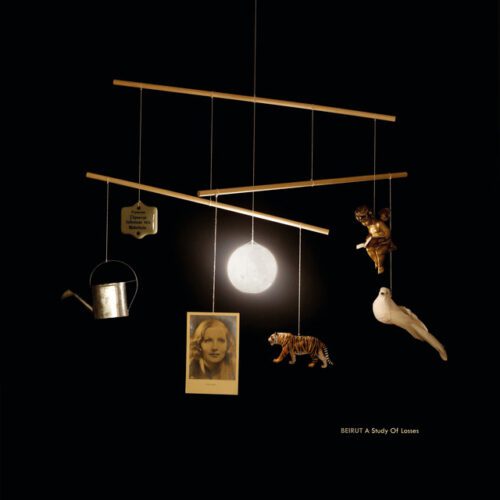Last night, the Festival de Monde Arabe welcomed the Franco-Algerian (and Lyon-based) group Koum Tara at Place des Arts’ 5e Salle. This eclectic octet comprises a jazz trio (piano/synthesizer, double bass, percussion), a string quartet and an oud (with double duty as singer). The very interesting musical proposal is that of an accessible and refined syncretism. The general structure of the pieces on the program is well-defined, in the vein of the popular Arab (Algerian) song style, chaâbi, and resolutely melody-based. We are not in the world of atmospheres or timbral research. Nor are we involved in a fusion tending towards contemporary art music, as with Anouar Brahem. Koum Tara’s style is one of playfulness and an easy-going spirit.
That said, Koum Tara’s approach remains original and daring, skilfully oscillating between typically Arabic harmonic inflections and jazz, and vice-versa, so that at times we no longer know what world we’re in. In fact, we’re in another space, a kind of quintessence that surpasses the sum of its parts. Existing songs from the Algerian repertoire coexist with original melodies, sometimes in the same piece. If you recognize a song that could have been sung by Dahmane El Harrachi, you almost immediately find yourself elsewhere, in a resolutely jazz vision of the style and wondering if it is a new tune or a classic one. This is done with great fluidity, which suggests a fine, in-depth knowledge of both cultural universes on the part of Karim Morris, the band’s solid leader on piano and synthesizer, and inspired arranger/composer.
The latter often has fun blurring stylistic demarcation lines even further, metamorphosing melodic phrases inherited from classical chaâbi into modern jazz impros and then Afro-Cuban music! The planet is thus shrunk into a cultural village where, as the saying goes, “everything is in everything”.
Morris gives his colleagues many opportunities to play. The jazz trio has plenty of room to express itself, the string quartet is not confined to a role of mere harmonic support, with some very fine counterpoint passages and interesting variations on the basic melodic material, and the oud player and singer (Hamidou) is the focal point of most of the pieces. The holistic coherence is honed to great effect. No hesitations or rhythmic disagreements. In this sense, Koum Tara’s music also borrows from classical music for its structural rigour and extreme interpretive precision. A job well done is a beautiful thing.
This blend of classical, jazz and “world”, but steeped in a resolutely limpid structure and “popular music” style, reminds me of what the Penguin Café Orchestra might play (if they were still active), accompanied by the Turtle Island String Quartet.
Very enjoyable.
